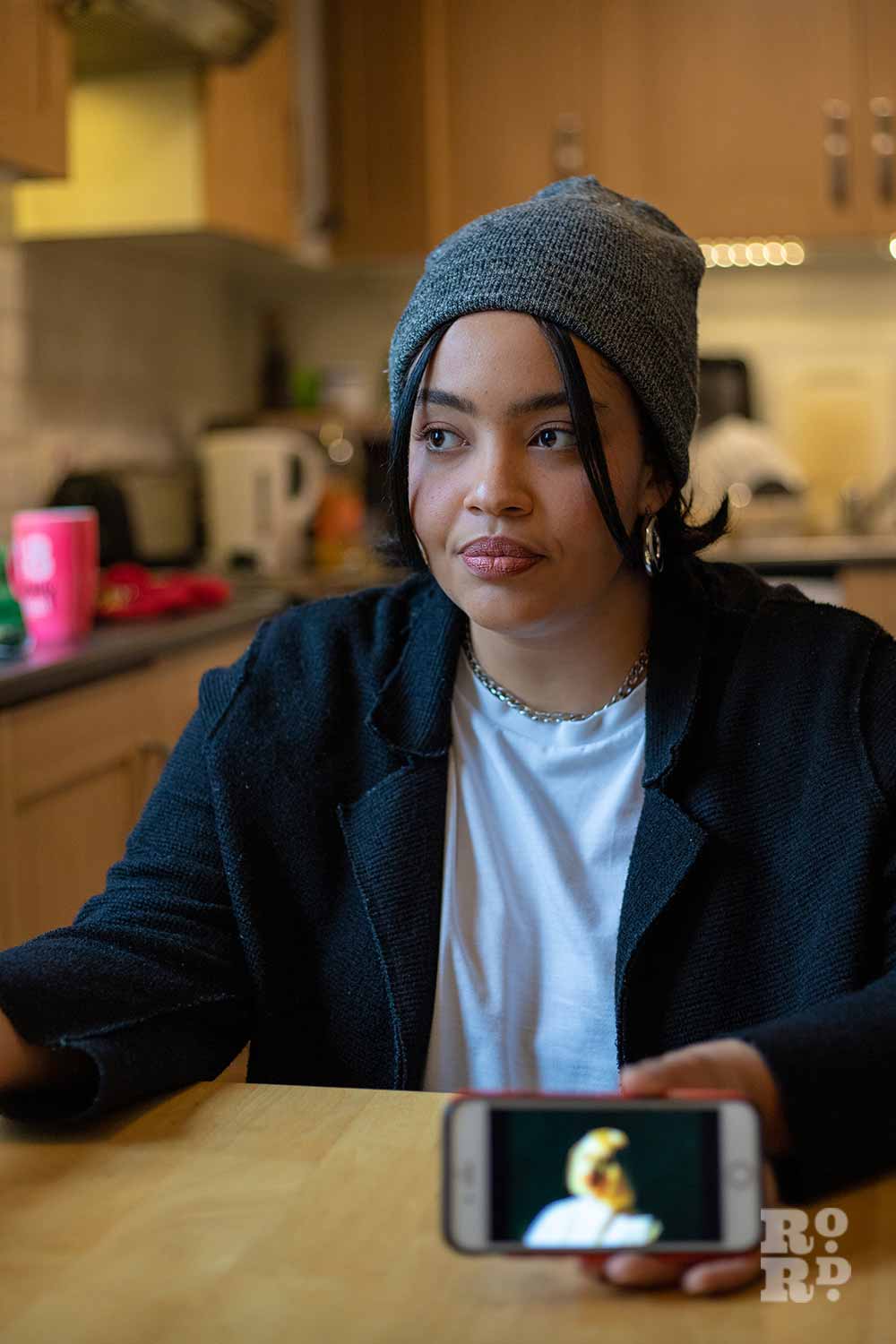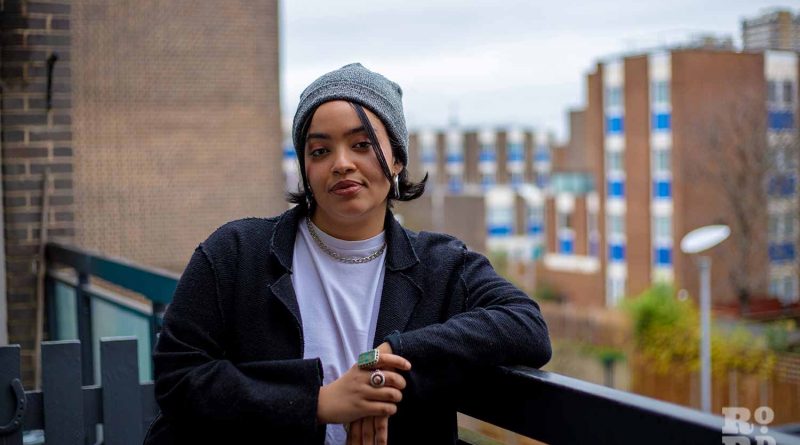Local actor Jennifer Dixon on breaking boundaries in the London theatre scene
Local contributor Siri Christiansen caught up with one of Mile End’s notable new names in the London theatre scene: Jennifer Dixon. She talks to Jennifer about finding her community in East London, and bringing sociopolitical issues to the stage.
I’m in Jennifer Dixon’s kitchen, overlooking the tree tops of Mile End Park and twisting a cup of tea between my hands while she’s overpowering the boiler by reciting Maya Angelou’s poem The Mask.
Originally from Midsomer Norton, an Agatha Christie kind of village somewhere between Bath and Bristol, Jennifer has been a steady resident in Bow ever since she enrolled at Queen Mary University in 2015; the result of an intervention by her sixth form drama teacher who, upon the request of a reference letter to Birmingham University, said ‘Jenny, unless this is for a London university, I’m not writing it”.
No longer a student, Jennifer still feels at home in the area and can be spotted picking up her latest notebook from Snap, having brunch at May + Harvey, or acting out scenes of racial injustice in theatres across London.
Currently represented by the Queer House, an agency for LGBTQ+ artists, Jennifer Dixon is part of a larger cultural force bringing underrepresented stories to the stage.
With recent roles including plays such as Jennifer Cerys’ Willow, a queer post-break up story,which was performed at The Bunker Theatre in Southwark, and Zawe Ashton’s For All the Women Who Thought They Were Mad, which explored racism in the corporate workplace, her acting career seems to be as much of an artistic expression as a form of social commentary.
Meeting with her a few days after her first live art performance at Hackney Showroom, an autobiographical take on body politics, I set out to understand where her personal story intersects with the stories she performs on stage.
How long have you been interested in acting?
I think I really got into it when I started secondary school. I’ve always enjoyed it, but when I was younger I was cripplingly shy. I have a memory of being one of the stars or angels at the christmas activity at preschool, and the stage fright was so intense that my mum had to take me down from the stage and sit with me in the back closet.
My confidence has always been an act. Working in a cocktail bar, The Satanic Whiskers in Bethnal Green, for the amount of time that I did, especially when my mental health was bad, I switched it on just to get out of myself. On a Friday or Saturday night especially, no-one wants to chat to a waitress who is on the verge of tears. It’s a lot easier to just, perform it… and then, at some point, it stops being a performance. But I don’t know where that line is drawn.
Does it ever go the other way around? Do some parts of you bleed into your performances on stage?
I am yet to experience being part of something and feeling like I don’t need to put some of myself in it. During the first week of rehearsals of For All the Women Who Thought They Were Mad, which was written in response to a news article about a black career woman in America who got severely misdiagnosed due to systemic racism in the health care, we didn’t face the script per se.
Rather, we focused on talking and really going over the themes of the play. It was extremely personal, because you’d watch this character fall apart because of the kind of life that black women have to navigate themselves through, a character who in so many ways could be you, or a friend, or a family member. It’s a real thing; when you go to a doctor and tell them that you’re experiencing pain, they often dismissed or ignore you.
So because it’s about these things that make up the body of me, there was no way that I couldn’t put myself in it.
Aside from being an actor and inhabiting roles written by someone else, you’ve recently acted out your own live art performance through your persona, Dixie. Can you tell us a bit about her?
Dixie is this exacerbated embodiment of the contradicting intersections that exist in my day-to-day life as a black woman who is also mixed race, using my dad’s nickname from his middle-class boarding school together with a blonde wig and clown-like face paint with blue eyes and the red oversized minstrelsy lips.
The performance I just did at Hackney Showroom for instance, combined fragments from my own life spliced with references to the concept of body politics, a video montage of Marilyn Monroe and Kim Kardashian, an interview with Katie Hopkins, and poems by Maya Angelou and Sylvia Plath. A glammed-up Dixie jumps around on stage to an upbeat track, being like “This is what you want, right? You don’t really want to think about the colour of my skin, you just want me to dance and make you laugh”.
I also read a piece of my own writing about the experience I had with my father in the hospital. And there’s this one line that I wrote ages ago, but will always stick with me: “My daddy was a racist but I really fucking loved him”.
He was pro-Ukip and right-wing in his views, and it made no sense because he had two daughters of colour. Even though he had so much love for my sister and I, and I have so much love for him, there’s also the reality of the person he was; this is his country, and people who look like me aren’t allowed in. Performing her in front of an audience for the first time this weekend was a big step for me. I’m at a point now where I’m not afraid of showing pain when it comes to things like that.
All of your previous roles have reflected the experience of women of colour. Do you think there is a lot of these kind of stories in theatres today?
Not as many as there should be, and these tiny changes are happening painfully slowly. For All the Women Who Thought They Were Mad was written 11 years ago, but Zawe Ashton have only been able to put it up this year because of the obstacles she has faced by people not wanting to face the uncomfortable reality of the story, claiming it wouldn’t be palatable to the white middle-class audience.
Even when there’s an actor of colour being cast in a role traditionally played by white actors, parts of the public seem to have strong reactions.
Yes, apparently a black woman can’t play Ariel, even though Ariel is a mermaid – it’s a fairytale. It’s mad. So many allowances and alterations are made until it comes to this particular thing and then, people just get really funny.
It would be great if it wasn’t always about skin colour and we lived in a utopia where everyone can play Ariel and where there are no segregated genres for ‘black horror’ or ‘black rom-coms’, but then it’s also understanding that it will probably never will be the case, not while you’re alive. Knowing how important our stories are, a part of me doesn’t even want it to be possible. Ultimately, this early in my career, I’ll take it as long as I stand for it.
Speaking of which, what’s next for Jen?
Well, I quit my day job at Satan’s Whiskers over at Cambridge Heath Road this September. I know how fortunate I am to be able to do so – yes, it’s terrifying. Currently, I’m looking to developing my own work concerning Dixie. The idea of being an artist has really implemented itself recently.
As your career takes off, you are happily settled in this part of London?
East London is my home: it has my heart. Sense of community is the soul of this area, Roman Road included. I felt so out of place when I first came to London but Tower Hamlets has been at the root of all my relationships with people of varying ethnicities, races and genders (or lack thereof).

Photos by Harry East.


